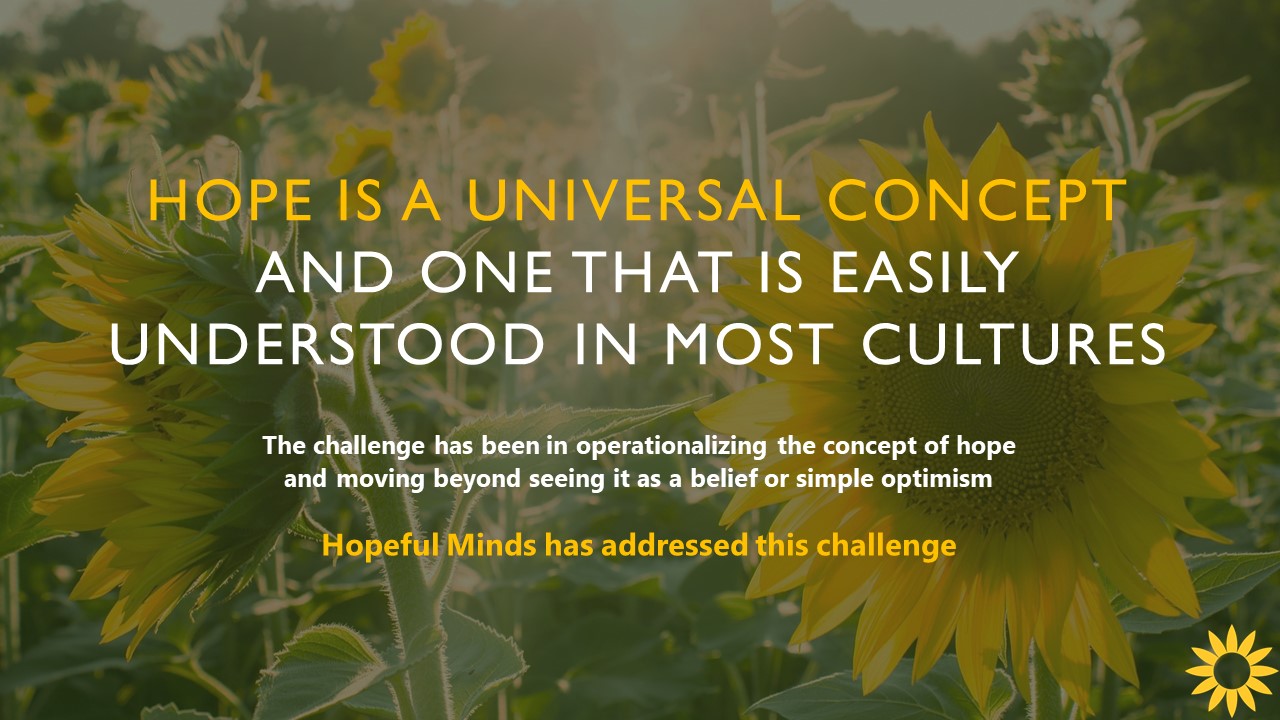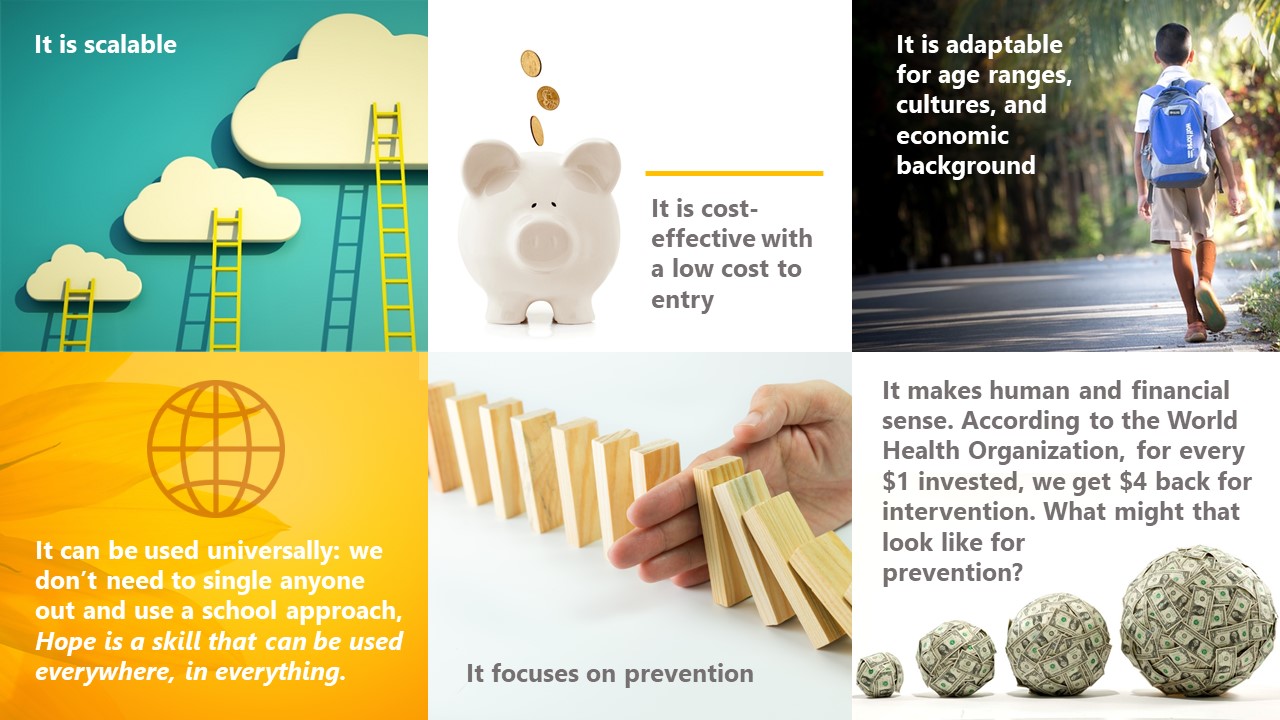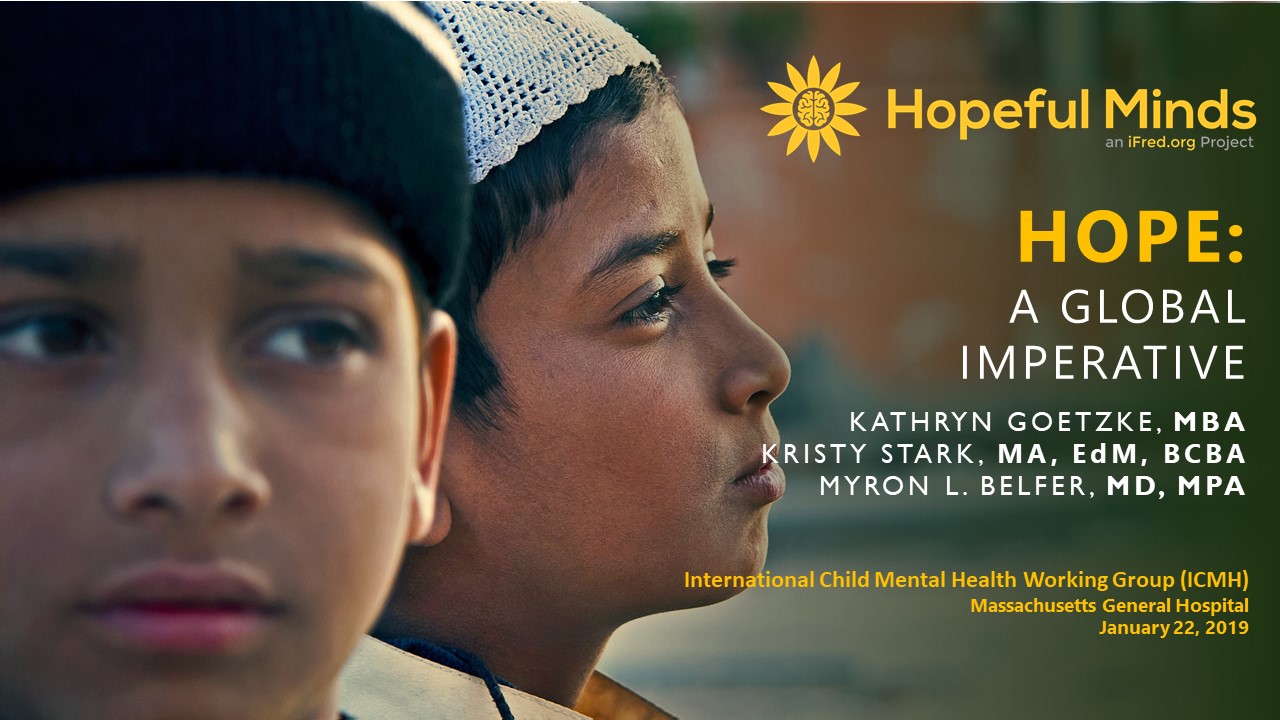Hopeful Minds is a project developed by iFred, the International Foundation for Research and Education on Depression Hope. It is based on research that suggests hope is teachable (a skill). The aim is to equip students, teachers, and parents with the tools they need to define, learn, and grow a hopeful mindset and prevent hopelessness around the world.
See our latest presentation at the International Child Mental Health Working Group (ICMH), Massachusetts General Hospital in Boston where we share our goals and ambitions for the project.
Hopelessness is the leading predictor of suicide, and number one symptom of depression. Higher hope, on the other hand, corresponds to greater academic achievement, improved health, increased productivity, less anxiety and depression, less violence, more social support and connection, and less loneliness. Our focus is on prevention of anxiety and depression, through teaching life skills for creating, maintaining, and sustaining Hope with practical tools and exercises.

Currently, we are researching ages 7-11, but the program is adaptable and modifiable for all age ranges and across cultures. We focused on this initial age group, as research suggests there is a significant rise of suicide attempts when students reach 6th grade (Journal of Adolescent Health via Family Matters, 2011), and most anxiety and depression appear before the ages of 14. We use the Whole School Approach – each and every child is taught these critical Hope life skills – we do not ‘single kids out’ as this is a program each and every child needs. We reinforce the concept, Hope is teachable.

For more information on our initial research results, please see the following documents for preliminary comprehension of materials insights, and be sure to sign-up for our newsletter. We are publishing a number of studies and pilots soon, and if you want to start a study in your area, please do contact us.
Hopeful Minds Shows Promise to Reduce Anxiety, Increase Hope and Improve Emotional Regulation Skills in Youth
Schools for Hope in Suriname Final July 2015
Comparison US and Suriname SFH Outcomes
Schools for Hope Executive Report 2015
Schools for Hope Research Report 2014
Hope in an Era of Despair
NI Can teaching Hope improve well-being and protective factors
NI Evaluation of Hopeful Minds 2018
About
Curriculum
Why Hope
Get Involved
Sponsors
Educator’s Resources
Supplemental Lessons
Find additional resources at www.ifred.org. If you or someone you know are having challenges with hope or needs immediate help, call 988. You can also text HOME to 741741 to connect with a crisis counselor from crisistextline.org. You can find a list of international resources at www.hopefulcities.org/get-support/.
Privacy Policy

